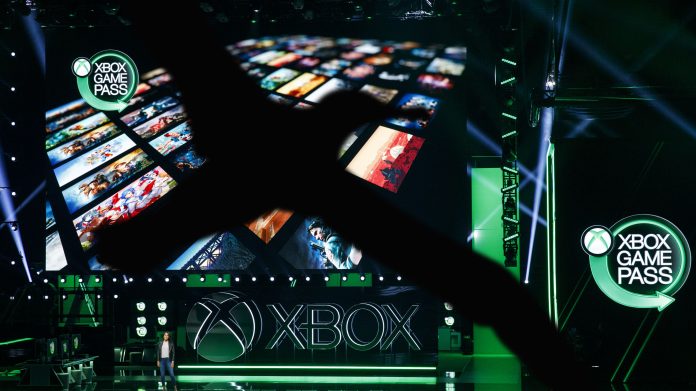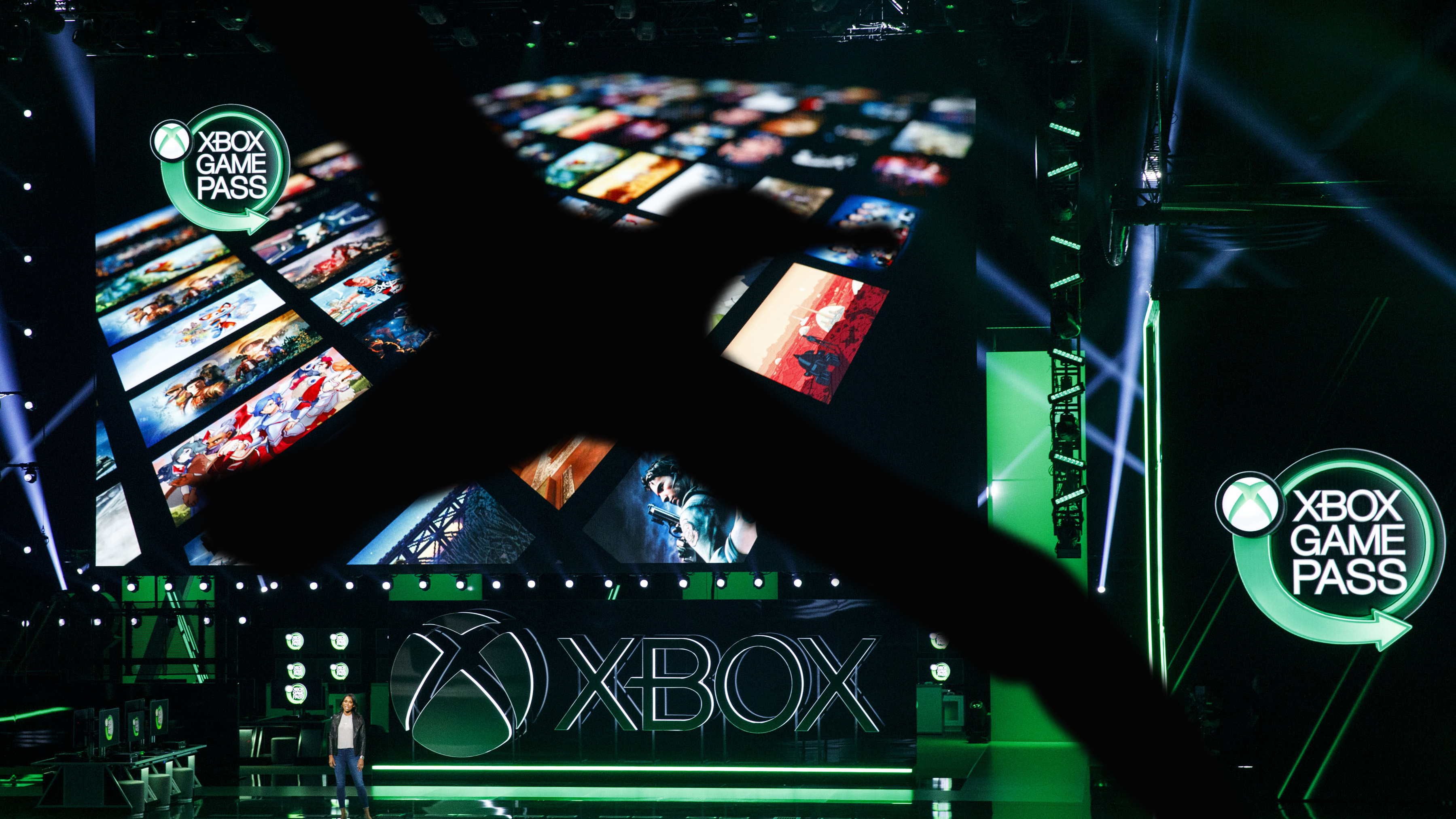
Xbox Game Pass is the best deal in gaming, as the saying goes. However, people are increasingly wondering if it’s simply too good to be true.
This past week, Microsoft laid off 9,000 employees across its business, with an undisclosed, but seemingly large proportion of those being within the Xbox business unit.
Veteran producers, project managers, marketers, developers, artists, and more were laid off without warning — many of whom had only recently enjoyed strong performance reviews. Projects that Microsoft had publicly been positive about were shut down, and in the case of The Initiative, an entire studio was closed.
In the fallout of one of Microsoft’s most disruptive and self-denigrating moves in years, people are wondering if the Xbox business is simply unhealthy, with a particular focus on Xbox Game Pass.
Is Xbox Game Pass too good to be true? Is it profitable? Is it an albatross around Microsoft’s gaming neck? Here’s what we know.
Is Xbox Game Pass profitable?
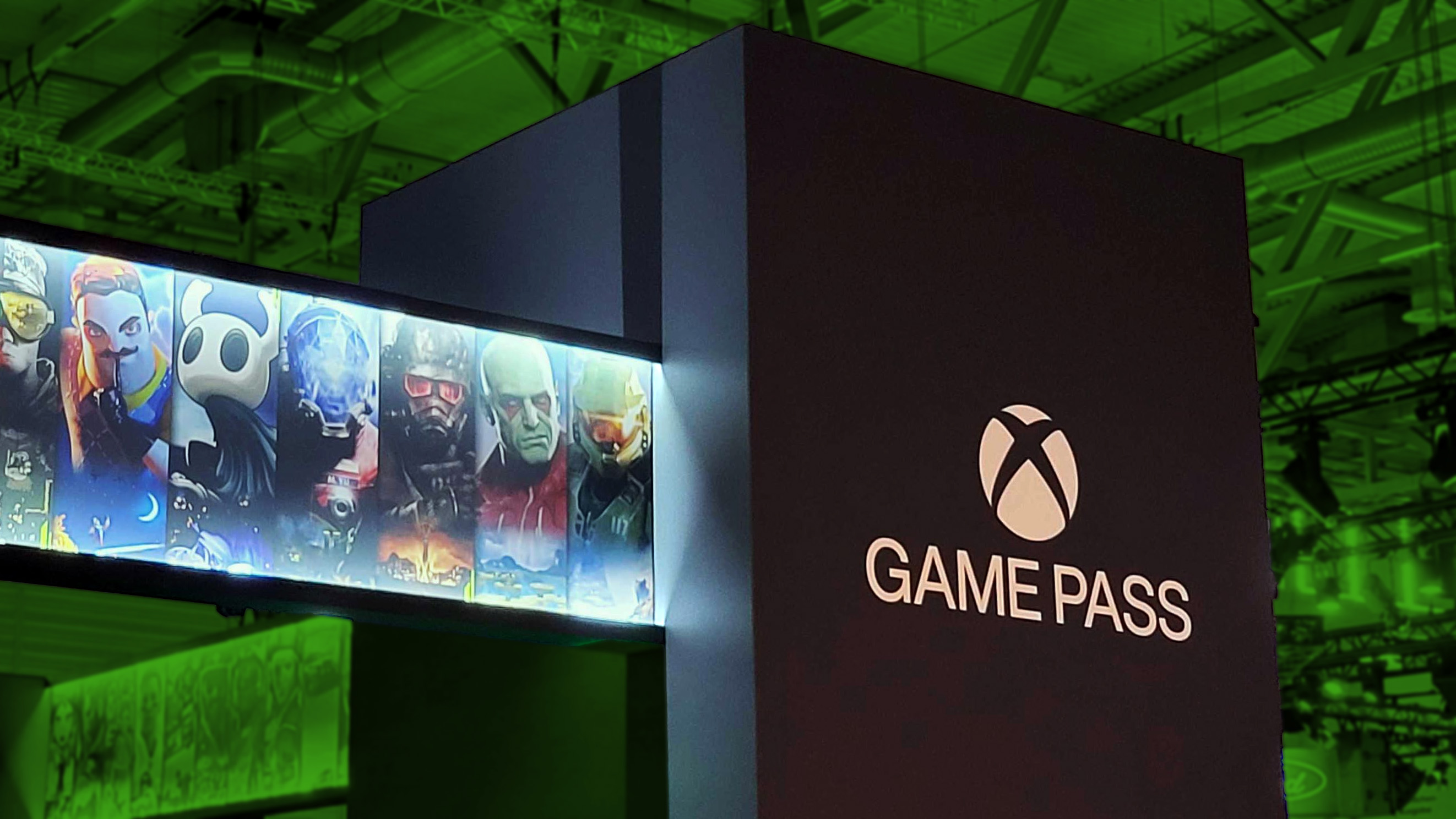
On X and other social platforms, Xbox Game Pass’ business viability has been called into question by various industry figures. Arkane founder of Prey and Dishonored fame Raphael Colantonio opined that “Xbox Game Pass is an unsustainable model damaging the industry for a decade,” and is subsidized only by Microsoft’s “infinite money.” (You should buy Prey by the way, and Weird West too).
DEAL: Lenovo Legion Go $200 OFF for Prime Day 💰
Xbox CEO Phil Spencer has maintained that Xbox Game Pass is profitable in various previous interviews. There’s no reason to think he wasn’t speaking to the reality of the situation, at least at the point of that interview. Microsoft is one of the most prolific companies on Earth with a $3.7 trillion market cap as of writing. You would hope it has a grasp on its business financials. This is before you factor in how it could land Microsoft in hot water with the SEC and shareholders if it misrepresented its business … but, of course, there are many ways in accounting to frame “profitability.”
Microsoft knows month-over-month how much money is coming into Xbox Game Pass via subscriptions, and they know the average churn rate (people unsubscribing). You would hope that they would account for these factors when making the case that Game Pass is a viable business model. Right?
However, perhaps there’s more to this “profitability” factor than meets the eye.
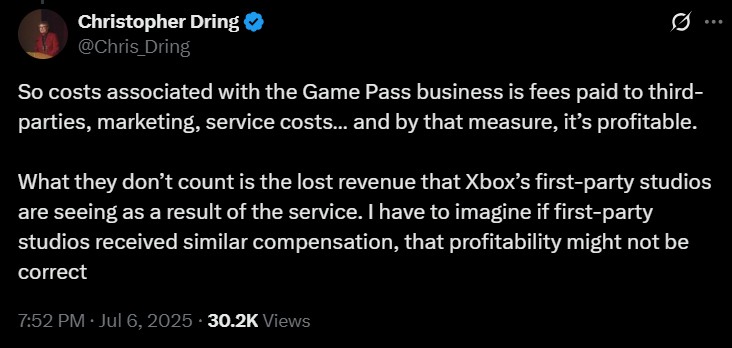
TheGameBusiness Editor-in-Chief and veteran journalist Chris Dring recently noted on X that Microsoft itself said that it does not factor first-party sales cannibalization into Xbox Game Pass.
In the early days, Microsoft said that Xbox Game Pass inclusion might actually help sales, through the spread of word-of-mouth, giving games in the service a “free-to-play”-like virality. Microsoft has stopped making that claim in recent years. As Xbox Game Pass behavior and knowledge has matured, Microsoft conceded in court that Xbox Game Pass does hurt retail game sales.
You would think then, that, Microsoft would factor in retail sales cannibalization when it comes to Xbox Game Pass’ profit and loss calculations.
Dring says that Microsoft itself told him that Xbox Game Pass’ profitability claims do not factor in lost revenue from first-party retail sales, i.e. how much cannibalization has or hasn’t taken place. There was commentary a few months ago revolving around DOOM: The Dark Ages, which didn’t do spectacularly good numbers on Steam … although Microsoft came out and suggested it had hit 3 million players “7 times” faster than DOOM Eternal. In essence, it could be taken as an admission that Game Pass cannibalized sales here.
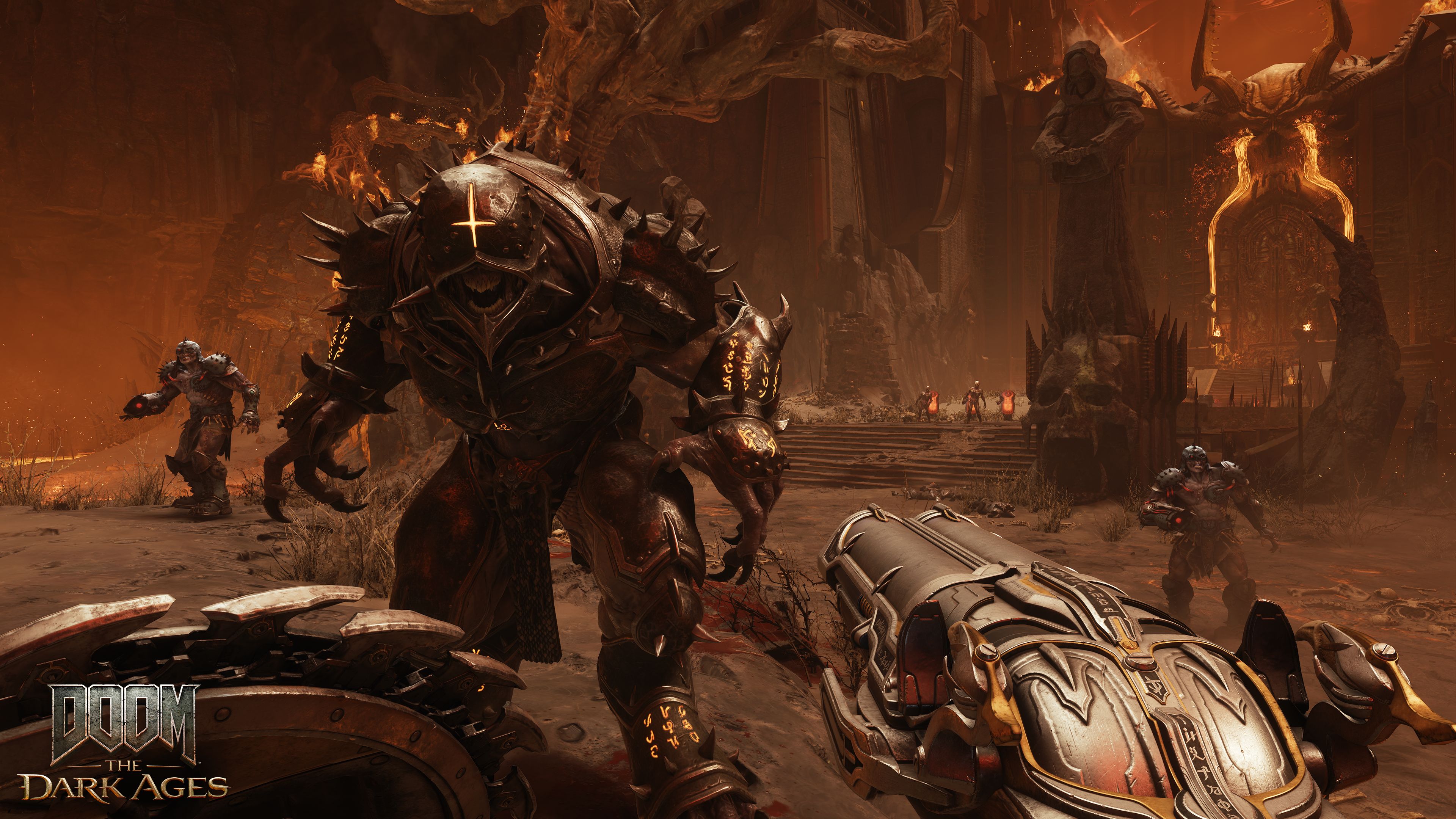
Does Microsoft really not factor in cannibalization when judging its internal studios’ performance? While I don’t doubt for a second that Chris Dring received the information from Microsoft sources, it contradicts what I’ve been told about how Microsoft calculates first party game sales against Game Pass profitability as of writing today.
In conversations with various Microsoft sources, I’ve been told that Microsoft performs calculations based on per-title retail forecasts, which includes things like Xbox, PC, and now PlayStation version game sales, among other factors. And then, it combines that information with the title’s Xbox Game Pass engagement. It then adds the net result to Game Pass profit and loss (P&L) statements for that title, essentially charging Game Pass for forecasted “lost sales” on Game Pass platforms. Engagement and reduced churn are factored as success indicators on top. What Microsoft spends on acquiring content and marketing Game Pass is also naturally factored into its P&Ls.
What Microsoft doesn’t do is factor in Game Pass cannibalization at the point of funding the game outright. Given that games are being built for a variety of endpoints and business models, sources argued that it wouldn’t make sense to put the entire dev costs of titles like Call of Duty or DOOM: The Dark Ages on top of Game Pass — unless the game was going to be fully exclusive to Xbox Game Pass as its only mode of sale and access. Microsoft performs the calculations after seeing how the title performed in the marketplace.
In short, Microsoft sources say it does charge and account for first-party games cannibalization against Game Pass. But perhaps there are wider issues worth accounting for as well.
The debate around Xbox Game Pass will continue, of course
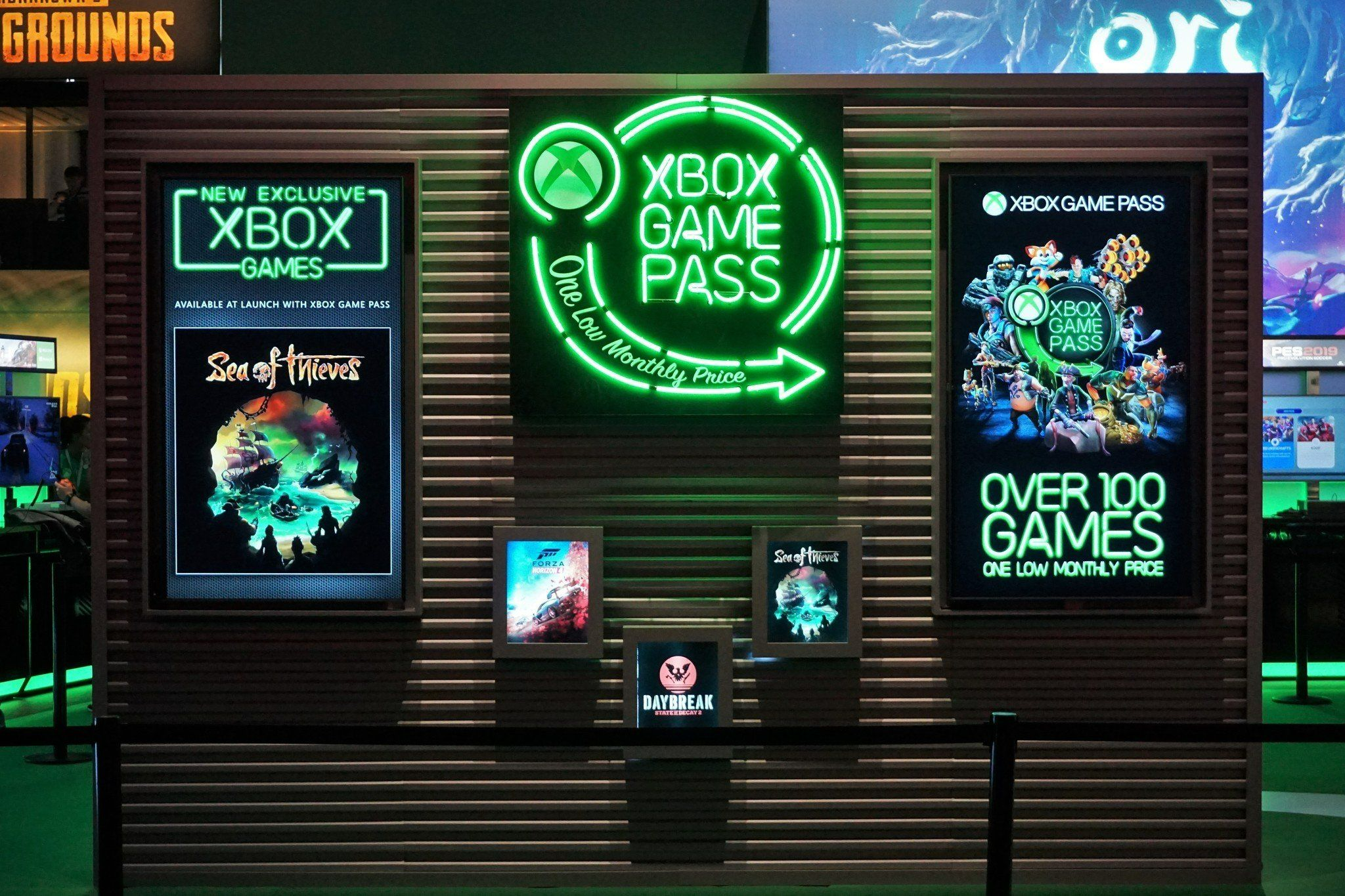
For my part, I’m not sure it makes sense to claim that Microsoft would continue to push Game Pass if it fully wasn’t working. Microsoft CEO Satya Nadella has repeatedly shown himself to not be someone that is willing to be patient and subsidize something. The graveyard of dead Microsoft products really exemplifies that, and Nadella’s blind spots when it comes to consumer habits have repeatedly shown through, particularly with things like the Windows Recall drama and the failure of Microsoft Copilot+ PCs.
One thing Microsoft very much does clearly understand is the quarterly Excel spreadsheet, and you’d have to hope they have a good grasp on whether or not Game Pass works as an additive product within the Xbox business.
But, perhaps there are unforeseen consequences of Game Pass in general. Many developers have spoken out in favor of Xbox Game Pass, including recently Sandfall Interactive of Expedition 33 fame. Others have decried it, including Revenge of the Savage Planet’s Alex Hutchinson, who went as far as to warn other developers not to launch there. Many studios frequently return to the platform with subsequent games and sequels, and even some big publishers like Capcom have used Game Pass as a vehicle to offset risk from some of their more experimental titles, like Exoprimal and Kunitsu-Gami.
There are some completely valid ideas about Xbox Game Pass being at odds with itself somewhat. If Game Pass did grow to cannibalize all retail sales, somehow, then we could end up in a situation like Spotify, where music is now viewed more through a passive, rather than passionate lens. If Game Pass doesn’t grow, then the subscription price would have to keep going up (at least in line with inflation) until it no longer represents value for the customer, potentially collapsing in on itself. Microsoft already removed day one games from some tiers of the service for this reason. Microsoft is also putting its AAA retail games up to $80 later this year, starting with The Outer Worlds 2 and most likely Call of Duty: Black Ops 7.
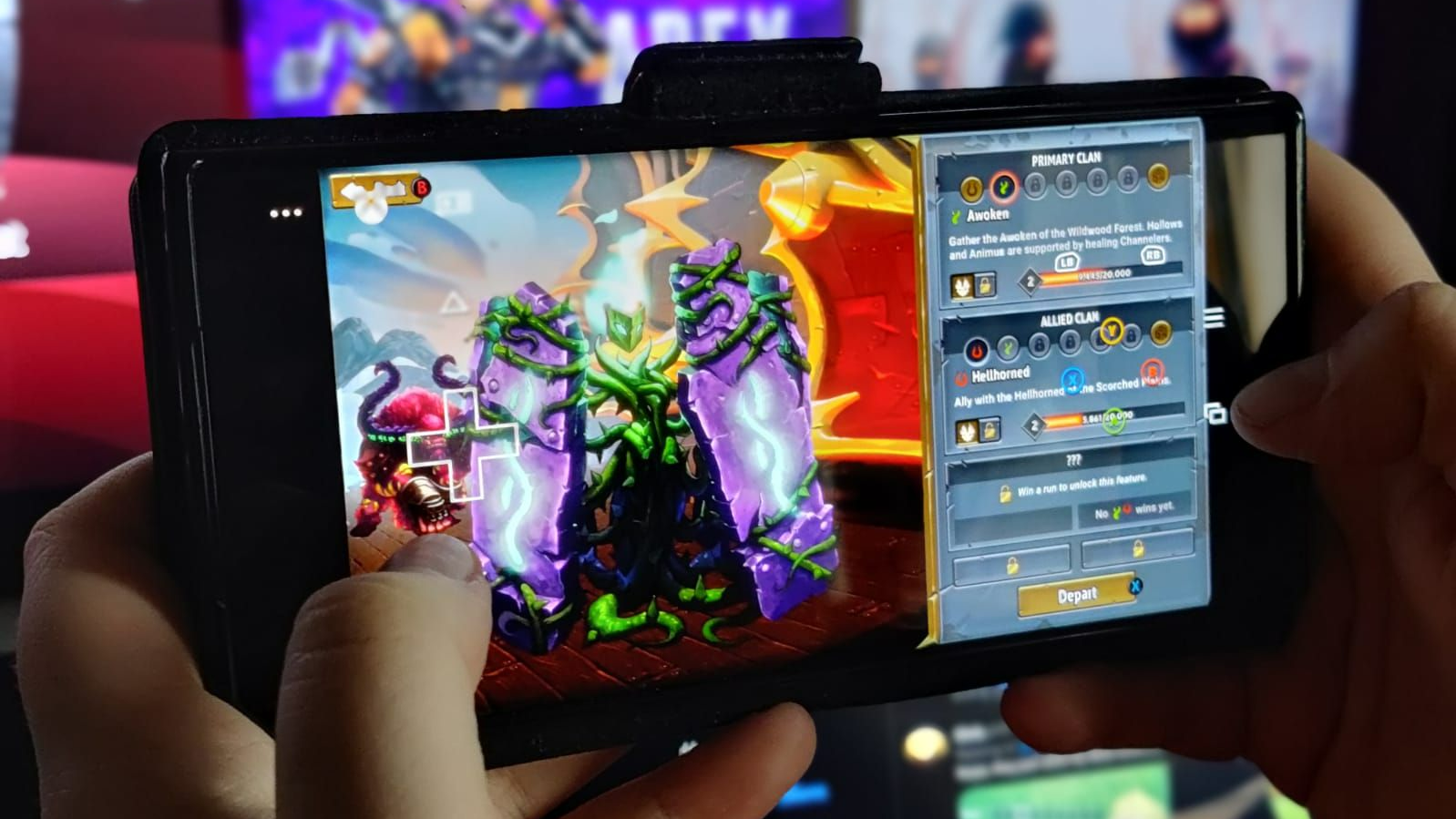
And of course, it’s hard to really account for the unpredictable human elements here. What if Game Pass and other similar services train users to not buy games at all, even on other platforms? Even for Microsoft, wouldn’t reducing the footprint of “owned” games, in theory, make it easier for people to give up on Xbox entirely and switch over to other platforms? — where they subsequently get locked in when buying digital games outright that cannot be resold.
As a customer, I obviously like being able to save money with Xbox Game Pass, particularly as someone who grew up in one of the poorest areas in England. I have strong memories of my family not being able to afford games. I’m sure many of you reading this do as well. Game Pass savings for families can be a powerful thing, particularly in an era where free “games-as-a-platform” forever-titles like Roblox and Fortnite are creating powerful expectations within younger gamers. I’ll never forget how confused a younger relative was when I told them Minecraft “isn’t free.”
But, I also wouldn’t want to live in a world where Game Pass was the only option available. As Microsoft pushes Xbox towards PC-like openness, striking the balance between Xbox and PC Game Pass, subscription and retail models, isn’t always going to be easy. I already think the Xbox PC app doesn’t do enough to showcase games actually hitting the store as a retail option.
Xbox CEO Phil Spencer himself said Game Pass isn’t for everyone, and hopefully it wouldn’t ever need to be.
